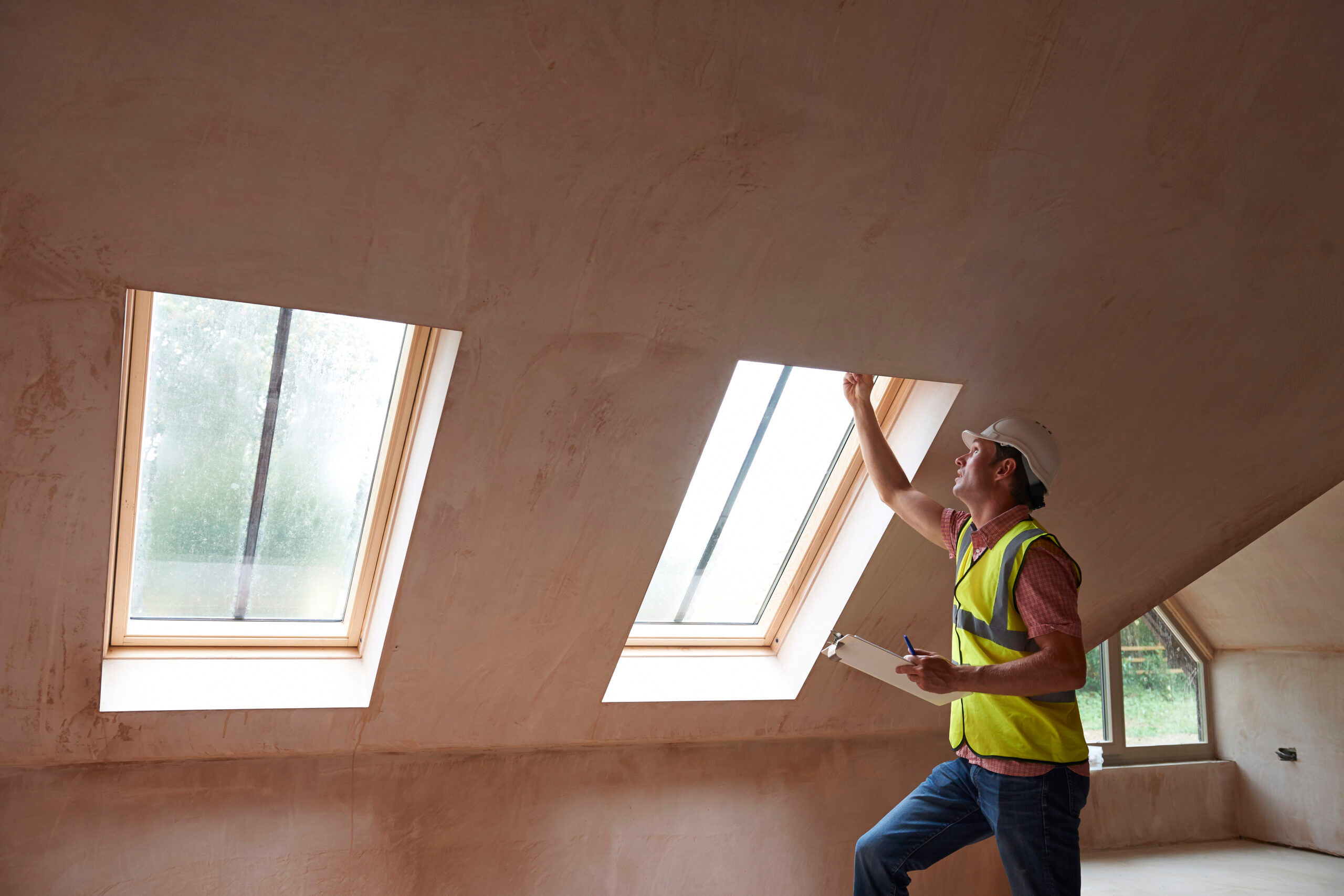What Do Home Appraisers Look For?
An appraisal is an objective evaluation of a home’s value. Buyers often seek appraisals to confirm the home is priced fairly and they are often required by mortgage lenders. This is because the bank doesn’t want to lend out more than the home is worth.
In some cases, sellers might seek out home appraisals before listing to confirm that they are choosing the right listing price for their properties. Appraisals may be required to refinance mortgages or take out home equity loans and lines of credit.
At times, there’s ambiguity about what home appraisals cover. Sellers might get caught up on certain home features while buyers want to know how the appraiser reached their evaluations. This guide will answer, “What do home appraisers look for?” while also addressing what they don’t – and what buyers and sellers can do with this information.
What Do Home Appraisers Look For?
Four key criteria determine the result of a home appraisal: the physical condition of the house, any improvements or upgrades, the neighborhood, and specific site characteristics.
Each of these sections comes with various subsections that form a home appraisal checklist. Here is an in-depth review of what factors into your home appraisal.
Neighborhood and Location
The first step is to evaluate the neighborhood to get a ballpark estimate of what houses or condos in the area sell for. The appraiser can use this as a starting point to increase or decrease a specific home’s value.
They might look at all of the homes that have sold in the area over a recent period – between 30 and 90 days – and compare their selling price per square foot. Market conditions can fluctuate quickly, which is why the home appraisal needs to have a tight window of comparable sales.
Appraisers often focus on the neighborhood level instead of the city or county level because home values can vary across town. The home prices on one street can even vary from those a block or two over.
Along with looking at the neighborhood, appraisers will also consider other location factors. These include:
- Nearby schools: school quality can significantly affect property values, especially in neighborhoods designed to accommodate families.
- Proximity to public transit: this is a significant asset in some areas where commuters take public transit each day.
- Access to local services: they will see if the house is built near local parks, nature preserves, grocery stores, popular downtown areas, and other amenities.
Each of these features reflects the quality of life in a neighborhood. Buyers tend to be willing to pay more for good school districts, access to parks, and other amenities.
Physical Condition of the Property
The neighborhood assessment in the home appraisal provides an estimate of what the average house would sell for in a particular area. The next step is for the appraiser to look at a specific property.
They will take a deep dive into the physical condition of the home to understand the fair market value of the house. Here is what is included.
- The size of the house: the appraiser considers the square footage of the house and compares it to other houses in the area.
- The number of bedrooms and bathrooms: this can confirm whether the house size is average for the neighborhood and reflect the desirability of the home to potential buyers.
- Additional living spaces: appraisers may look at additional rooms like home offices, dens, play areas, and large closets.
- Physical condition: The appraiser wants to make sure the exterior, roof, and windows are in good shape. They will also look at the interior finishes, appliances, HVAC system, and other essential elements.
- Driveways and walkways: Appraisers will look at the material of the driveway and its condition.
- Foundation and attic: They will also consider the condition of the attic, check the foundation, and climb into the basement. Appraisals can be affected by whether the basement and attic are finished or unfinished.
- Outdoor amenities: The home appraisal process includes outdoor factors like pools, sheds, greenhouses, and patios.
- Accessibility features: Features like ramps, wide doorways, walk-in tubs, and safety bars can affect marketability and value.
- Energy efficiency: Solar panels, tankless water heaters, and insulated ducts can influence the appraisal. This is particularly true if the solar panels are paid off.
Every aspect of your property contributes to the home appraisal, from the driveway to the age of the HVAC system.
Home Improvements, Upgrades, and Additions
A large part of the home appraisal process is out of the seller’s control. They can’t control the local school ratings or what other homes near them sell for. However, they can make home improvements that increase the value of their properties. Here are a few ways sellers can positively influence the appraisal value.
- Kitchen and Bathroom Remodels: studies show buyers are willing to pay more for updated kitchens and bathrooms. This includes updated appliances, new cabinets, modern vanities, and improved flooring.
- Major Components: New roofs, HVAC systems, storm windows, and other significant factors can increase perceived value. This is because buyers can feel confident they won’t need to replace these features in the near future.
- Exterior Features: Homeowners who add pools, patios, and other bonus features may notice an increase in their appraisal value. However, the increased value is rarely equal to the amount invested. Make sure any improvements reflect your own personal preferences and enjoyment, not just the potential resale value you hope to get back.
When you meet with a real estate agent to sell your home, they will ask about any home improvements you made. This is because they have their own estimate based on their comparative market analysis (CMA). They will factor any improvements you make into this analysis and expect the value to reflect in the home appraisal as well.
For example, if your home is reported to be a three-bedroom, two-bath property, but you finish the basement (with a bedroom, new bathroom, and climate control), then the value would be higher. The house is now a four-bedroom, three-bath property with more livable square footage.
Site Characteristics
Finally, your home appraiser will consider the lot that your house is built on. The appraiser is looking for any benefits or potential drawbacks of your home’s particular placement. Here are some examples:
- Lot size: a big backyard can be an asset. The home appraisal will cover whether the lot is larger or smaller than other parcels in the neighborhood.
- Zoning: the appraiser will consider how close the lot is to businesses, major roads, and other buildings that could affect your property values.
- Hazards: the appraiser will check to see if you are in a FEMA-designated flood zone or if the property faces other hazards like fire, hurricane, or tornado risks.
- Off-Site Improvements: Access to sidewalks, streets, alleyways, and other infrastructure factor into the appraisal.
The same characteristics can be beneficial and detrimental to home values. For example, water access is an amenity that can raise property values, but also a flood risk that can deter buyers who don’t want to accrue extra insurance costs.
Living on a corner can be a benefit if the property touches a school bus stop, but a detriment if the bus stops on a busy street.
FHA and VA Loan-Specific Appraisals
If the buyer is taking out an FHA loan or VA loan, the appraiser will take extra steps to evaluate the quality of the house. They are looking for specific safety and health standards beyond traditional appraisals. Here are a few things that appraisers check for when the purchase involves an FHA or VA loan.
- The house must have a stable foundation without any noticeable issues.
- The roof must be in good condition.
- The electric system must be safe and up-to-code without any exposed wires.
- The utilities need to be connected and functioning properly.
- There isn’t any chipping or peeling lead-based paint.
- There cannot be any evidence of termite or wood-destroying insect infestations.
- There cannot be any exterior or interior health and safety hazards.
If you are a seller who accepts an FHA loan or VA loan offer, your Realtor should confirm with you that each part of your house is up to code. They can help you get your property to a place where it passes these inspection and appraisal requirements.
Appraisals for Refinances
An appraisal isn’t just part of the home buying process, it is also used for refinancing. A mortgage refinance allows you to get new terms for your monthly payment, either to secure a lower interest rate or to take out cash as part of a home equity loan.
Your mortgage lender needs to confirm the value of your home before agreeing to new loan terms. Even if you just bought the property a few years ago, the home value could have changed significantly and will affect the loan terms.
For example, if your original loan was $300,000 on a $400,000 house, you would borrow 75% of the home’s value. If you refinance after a few years, you might need a $280,000 loan on a house that is appraised at $425,000. This brings the loan value to 67%.
However, if your property values drop, then you might take out a $280,000 loan on a $350,000 property. This brings the loan value past 80% and could require you to take out private mortgage insurance (PMI).
Some refinances might only require a limited appraisal, which could be more affordable and faster. In a home purchase, the buyer typically pays. However, the owner would cover the cost of the appraisal in a refinance.
What Appraisers Do Not Consider
It may seem like the list of factors in a home appraisal is never-ending, but there are plenty of factors that are not considered. Here are a few things that appraisers do not look at – and why.
- Interior design elements: paint choices, window fixtures, and other design factors are not part of the appraisal. Choosing a good paint color cannot increase your home’s value.
- Appliances: while updated appliances can be desirable to buyers, some sellers move with their laundry units, cooktops, refrigerators, and ranges. This is why appliances cannot be part of the home appraisal.
- Personal property: once again, this moves with the seller. Temporary fixtures cannot be part of the appraisal process.
- Clutter and dirt: appraisers do not care if your house is packed with items and needs to be decluttered. However, they may take note of a pest infestation or the presence of mold.
It doesn’t matter how impressive your interior design is, these factors cannot affect the home appraisal. The person who evaluates your home will only look at permanent features and tangible benefits like access to good schools and local parks.
Tips for a Successful Home Appraisal
Even though a large part of the home appraisal is out of your control, you can still take steps as a seller to position your home in its best light. Here are a few ways to increase your chances of a successful home appraisal that results in values close to your asking price.
- Prepare your home: clean your space and make it accessible. Make sure the appraiser can access the attic and basement, along with each room.
- Provide documentation: compile a list of home improvements, receipts, and other relevant paperwork that showcase the value of your home investments. This will also make it easier to answer questions about the age of the roof, HVAC, and other major systems while providing documentation to back up your claims.
- Invest in repairs and updates: depending on how long you have, spend time making repairs and improving the condition of your home. This is also a significant part of preparing your home for sale.
- Landscaping: work on your curb appeal. Mow the lawn, trim any trees or bushes, and power wash your driveway and house. This can make your home look appealing and potentially increase its perceived value.
Additionally, be present at the appointment to answer any questions the home appraisers have. In some cases, your real estate agent will be present on your behalf. If they attend but you do not, keep your phone nearby to quickly address any questions that come through. This will prevent information gaps in the appraisal report that could hurt the reported value.
What to Do If an Appraisal Comes in Low
Once the home appraisal is complete, the report will be sent to the mortgage lender – not the seller and typically not the buyer. The mortgage lender will go over any concerns with the buyer that could prevent the deal from going through. One of the biggest issues is when the home appraisal is too low.
For example, if a buyer agrees to a $400,000 listing price but the appraisal is only $375,000, the lender might not approve the loan. This shows that the lender would not be able to recoup the difference if the buyer defaulted on the loan.
Low home appraisals are stressful for everyone involved, but there are multiple solutions to this problem. Here’s the next step in the appraisal process.
- The seller provides additional data: the seller asks to fix incorrect information or correct mistakes that could have hindered the appraisal amount. There could be miscalculations in the square footage or oversights that caused drops in the value estimate.
- The seller asks for a second look: they might request a second opinion or a re-evaluation from the appraisal company.
- Both parties renegotiate the sale price: the seller can come down to meet the appraisal.
- The buyer makes up the appraisal discrepancy in cash: the buyer’s mortgage lender may agree to cover the loan if there is a larger downpayment.
- The buyer uses their appraisal contingency: they might be able to walk away from the purchase because the house was overpriced compared to the appraisal result.
The actions moving forward often depend on the buyer, seller, and discrepancy. A $5,000 difference is easier to overlook than a $50,000 one and some sellers might be more willing to negotiate prices than others.
Hire Real Estate Agents Who Can Navigate Home Appraisals
A real estate appraisal is a natural part of the home-selling process. It is also used for refinancing and taking out home equity lines of credit. If you need an appraisal, work with a Realtor who can help you position the house in its best light.
They can offer advice on how to get the most out of this appointment. Start by asking, “What do home appraisers look for?” and see what they know.
If you are looking for a real estate agent, turn to FastExpert. You can find qualified Realtors in your area who have been through dozens of home appraisals. Their expert guidance can make the home sale process easier. Try FastExpert today!





